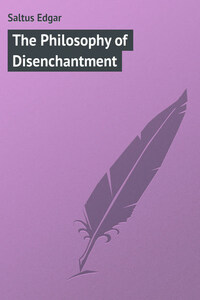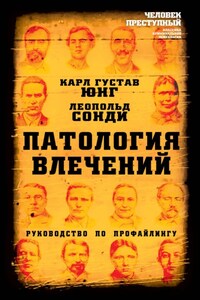"I wish you a happy New Year, sir."
It was the servant, green of livery, the yellow waistcoat slashed with black, bearing the coffee and fruit.
"Put it there, please," Roland answered. And then, in recognition of the salutation, he added, "Thanks: the same to you."
"H'm," he mused, as the man withdrew, "I ought to have tipped him, I suppose."
He leaned from the bed, poured some milk into a cup, and for a second nibbled at a slice of iced orange. Through the transom came a faint odor of home-made bread, and with it the rustle of a gown and a girl's clear laugh. The room itself was small. It was furnished in a fashion which was unsuggestive of an hotel, and yet did not resemble that of a private house. The curtain had been already drawn. Beyond was a lake, very blue in the sunlight, bulwarked by undulant hills. Below, on the road, a dogcart fronted by a groom was awaiting somebody's pleasure.
"It is late," he reflected, and raised a napkin to his lips. As he did so he noticed a package of letters which the napkin must have concealed. He took up the topmost and eyed it. It had been addressed to the Athenæum Club, Fifth Avenue; but the original direction was erased, and Tuxedo Park inserted in its stead. On the upper left-hand corner the impress of a firm of tailors shone in blue. Opposite was the engraving of a young woman supported by 2-1/2d. He put it down again and glanced at the others. The superscriptions were characterless enough; each bore a foreign stamp, and to one as practised as was he, each bore the token of the dun.
"If they keep on bothering me like this," he muttered, "I shall certainly place the matter in the hands of my attorney." And thereat, with the air of a man who had said something insultingly original, he laughed aloud, swallowed some coffee, and dashed his head in the pillow. In and out of the corners of his mouth a smile still played; but presently his fancy must have veered, for the muscles of his lips compressed, and as he lay there, the arms clasped behind the head, the pink silk of his sleeves framing and tinting his face, and in the eyes the expression of one prepared to meet Fate and outwit it, a possible observer who could have chanced that way would have sat himself down to study and risen up perplexed.
Anyone who was at Columbia ten years ago will remember Roland Mistrial, – Roland Mistrial 3d, if you please, – and will recall the wave of bewilderment which swept the campus when that young gentleman, on the eve of graduation, popularity on one side and honors on the other, suddenly, without so much as a p. p. c., left everything where it was and betook himself to other shores. The flight was indeed erratic, and numerous were the rumors which it excited; but Commencement was at hand, other issues were to be considered, bewilderment subsided as bewilderment ever does, the college dispersed, and when it assembled again the Mistrial mystery, though unelucidated, was practically forgot.
In the neighborhood of Washington Square, however, on the northwest corner of Tenth Street and Fifth Avenue to be exact, there were others whose memories were more retentive. Among them was Roland's grandfather, himself a graduate, founder of the Mistrial fellowship, and judge of the appellate court. And there was Roland's father, a graduate too, a gentleman widely respected, all the more so perhaps because he had run for the governorship and lost it. And again there was Roland's aunt, a maiden lady of whom it is recorded that each day of her life she got down on her knees and thanked God he had made her a Mistrial. In addition to these, there were, scattered along the Hudson, certain maternal relatives – the Algaroths, the Baxters, and the Swifts; Bishop Algaroth in particular, who possessed such indomitable vigor that when at the good old age of threescore and ten he decided to depart this life, the impression prevailed that he had died very young for him. None of these people readily forgot. They were a proud family and an influential one – influential not merely in the social sense, but influential in political, legal, in church and university circles as well; a fact which may have had weight with the Faculty when it was called upon to deal with Roland Mistrial 3d. But be that as it may, the cause of the young man's disappearance was never officially given. Among the rumors which it created was one to the effect that his health was affected; in another his mind was implicated; and in a third it was his heart. Yet as not one of these rumors had enough evidential value behind it to concoct an anonymous letter on, they were suffered to go their way undetained, very much as Roland had already gone his own.
That way led him straight to the Golden Gate and out of it to Japan. Before he reached Yeddo his grandfather left the planet and a round sum of money behind. Of that round sum the grandson came in for a portion. It was not fabulous in dimensions, but in the East money goes far. In this case it might have gone on indefinitely had not the beneficiary seen fit to abandon the languors of the Orient for the breezier atmosphere of the west. The Riviera has charms of its own. So, too, have Paris and Vienna. Roland enjoyed them to the best of his ability. He even found London attractive, and became acclimated in Pall Mall. In the latter region he learned one day that his share of the round sum had departed and his father as well. The conjunction of these incidents was of such a character that he at once took ship for New York.














